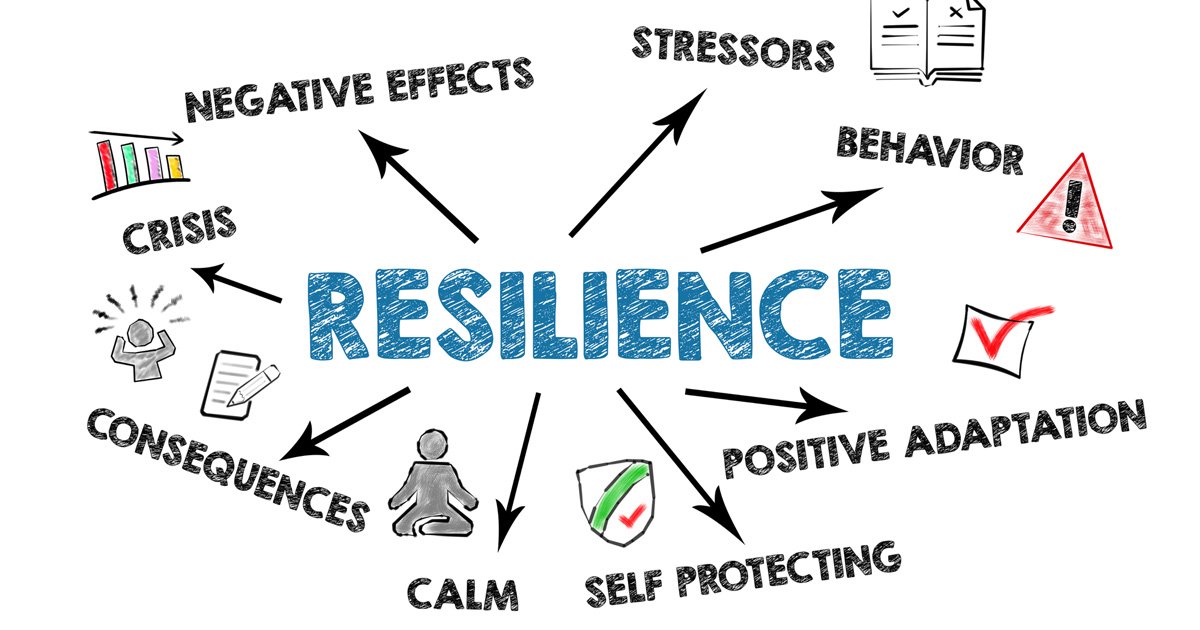
How to Build Emotional Resilience as a Modern Man
Life as a modern man can feel like a balancing act. Between work deadlines, relationships, personal aspirations, and societal expectations, it’s easy to feel overwhelmed. The secret to thriving under this pressure isn’t about avoiding challenges; it’s about cultivating emotional resilience—your ability to handle life’s ups and downs with strength, clarity, and balance.
But what does emotional resilience actually mean, and how can you develop it? In this article, I’ll unpack its definition, explain why it matters, and share practical ways you can build this essential skill. I’ll also offer some personal examples to highlight what emotional resilience looks like in action, along with a few recommended resources to dive deeper into the topic.
What Is Emotional Resilience?
At its core, emotional resilience is the ability to adapt to adversity, recover from setbacks, and grow stronger through life’s challenges. It doesn’t mean you’re impervious to stress or immune to failure. Rather, it’s about maintaining emotional balance and composure, even when circumstances get tough.
Here’s a simple definition:
Emotional resilience is the capacity to manage stress, navigate setbacks, and maintain emotional well-being through life’s difficulties.
Think of it as your emotional muscle. Just like physical muscles, it strengthens over time with consistent effort and intentional practice.
Some might refer to emotional resilience as “emotional toughness” or “mental grit,” but at its heart, it’s about flexibility—your ability to bend without breaking.
Why Emotional Resilience Is Important for Modern Men
Men, in particular, are often conditioned to appear unshakable in the face of adversity. There’s an unspoken pressure to keep emotions bottled up, to push through, and to avoid vulnerability at all costs. While stoicism has its place, true emotional strength comes from understanding and managing your emotions—not suppressing them.
Without emotional resilience, everyday stress can spiral into burnout, and setbacks can feel insurmountable. On the flip side, cultivating emotional resilience gives you the tools to approach challenges with confidence and perspective. It enables you to lead with clarity, build healthier relationships, and show up as the best version of yourself—no matter what life throws your way.
How to Build Emotional Resilience: A Practical Guide
Let’s get into the real question: how can you build emotional resilience? While it’s a lifelong journey, there are concrete steps you can take to strengthen your emotional foundation. Here’s what’s worked for me:
1. Accept Your Emotions Without Judgment
The first step in building emotional resilience is learning to acknowledge your feelings without labeling them as “good” or “bad.” Emotions are natural signals that tell you what’s happening inside. The key is to listen without letting them control you.
For instance, I remember a time when I faced a major career setback. Instead of burying my disappointment, I let myself feel it fully. I didn’t try to rush through the emotions or dismiss them. Once I processed the feelings, I could focus on what came next—identifying lessons and moving forward.
What You Can Do: Try journaling your emotions each evening. Write about what you felt during the day and why. Over time, this practice will help you recognize patterns and triggers, which is the first step toward managing them.
2. Focus on a Growth Mindset
Having a growth mindset—the belief that skills and intelligence can be developed—makes a world of difference when it comes to resilience. If you view challenges as opportunities to grow rather than roadblocks, you’ll naturally become more adaptable.
For example, when I was tasked with leading a high-stakes project at work, I felt unprepared and out of my depth. But instead of giving up, I saw it as a chance to stretch myself. I sought advice, upskilled where needed, and completed the project successfully.
What You Can Do: The next time you face a setback, ask yourself, “What can I learn from this?” Write down your answers and use them as fuel for growth.
3. Build a Reliable Support System
No man is an island. A strong network of friends, family, or mentors can make all the difference when life gets hard. Emotional resilience isn’t about going it alone; it’s about knowing when to lean on others.
In my life, I’ve leaned on trusted friends during tough times. Just having someone to talk to, someone who listens without judgment, has been incredibly grounding.
What You Can Do: Make it a priority to nurture your relationships. Check in with a friend or loved one regularly—even when things are going well.
4. Practice Mindfulness and Meditation
Mindfulness is a powerful tool for cultivating resilience. By training yourself to stay present, you can reduce stress and build the emotional space to respond thoughtfully rather than reacting impulsively.
Personally, I’ve found mindfulness practices invaluable. Before a particularly stressful meeting, I’ll often take five minutes to focus on my breathing. That simple act of slowing down helps me approach the situation with clarity and calm.
What You Can Do: Start small. Spend two minutes each day focusing on your breath. Apps like Headspace or Calm can guide you if you’re new to mindfulness.
5. Take Care of Your Physical Health
Your body and mind are deeply connected. When you neglect physical health—whether it’s through poor sleep, lack of exercise, or an unhealthy diet—your emotional resilience suffers. On the flip side, building healthy habits boosts your capacity to handle stress.
For me, regular exercise has been a game-changer. Even a short workout lifts my mood and gives me the mental clarity to tackle challenges head-on.
What You Can Do: Start by committing to 30 minutes of physical activity most days of the week. Even a walk around your neighborhood counts!
6. Reframe Negative Thoughts
One of the most effective ways to build resilience is by reframing negative thoughts. When challenges arise, it’s easy to focus on what’s going wrong. But shifting your perspective can help you see opportunities instead of obstacles.
I’ve practiced this during times of financial stress. Instead of focusing on what I lacked, I used the experience to reevaluate my spending habits and set better financial goals.
What You Can Do: The next time you catch yourself in a negative thought loop, pause and ask: “What’s one positive thing I can take away from this?”
7. Don’t Let Other People’s opinions Affect You
Because we are social creatures it is so easy to get affected by other people’s opinion. Social media, TikTok and Instagram doesn’t make it easier. It’s like the value of a human life is measured on the amount of likes, shares, and followers a person gets on these channels.
Don’t let that or peoples mind affect you. Be an original, be you and don’t give a s… about what other people thinks about you.
Peoples evaluation of you are based on split seconds, biases, trends, news, personal experiences, peoples mood, depressions, personal struggles etc.
It’s a follow the crowd mentality where nobody should stick out and be original. Don’t fall into that.
Build Self-Love.
8. Set Goals and Celebrate Wins
Having a sense of purpose keeps you grounded. When you set meaningful goals, you’re less likely to feel lost during tough times. Celebrating progress—no matter how small—reinforces your resilience.
In my life, breaking down big goals into smaller, achievable steps has been transformative. Every small victory fuels my motivation to keep going.
What You Can Do: Write down one short-term goal this week and take one small step toward it. Celebrate when you achieve it!
Emotional Resilience in Action
Here are a few examples of emotional resilience in real life:
- Career Challenges: Navigating job uncertainty by focusing on skills you can develop.
- Relationship Struggles: Resolving conflicts by communicating openly instead of shutting down.
- Personal Loss: Grieving fully while leaning on your support system for comfort.
Recommended Reading for Building Emotional Resilience
- Grit: The Power of Passion and Perseverance by Angela Duckworth
- Man’s Search for Meaning by Viktor E. Frankl
- The Resilient Mind by Brad Coulbeck
Each of these books offers practical insights and inspiration for cultivating resilience.
Final Thoughts: Becoming a Resilient Modern Man
Building emotional resilience isn’t a quick fix—it’s a lifelong process. But the good news is that every step you take, no matter how small, strengthens your emotional foundation.
Start with simple practices like mindfulness, journaling, or reaching out to a friend. Over time, these small habits will compound, making you more adaptable, more confident, and more capable of handling whatever life throws your way.
What steps will you take today to build your emotional resilience?
Recommended Resources:


